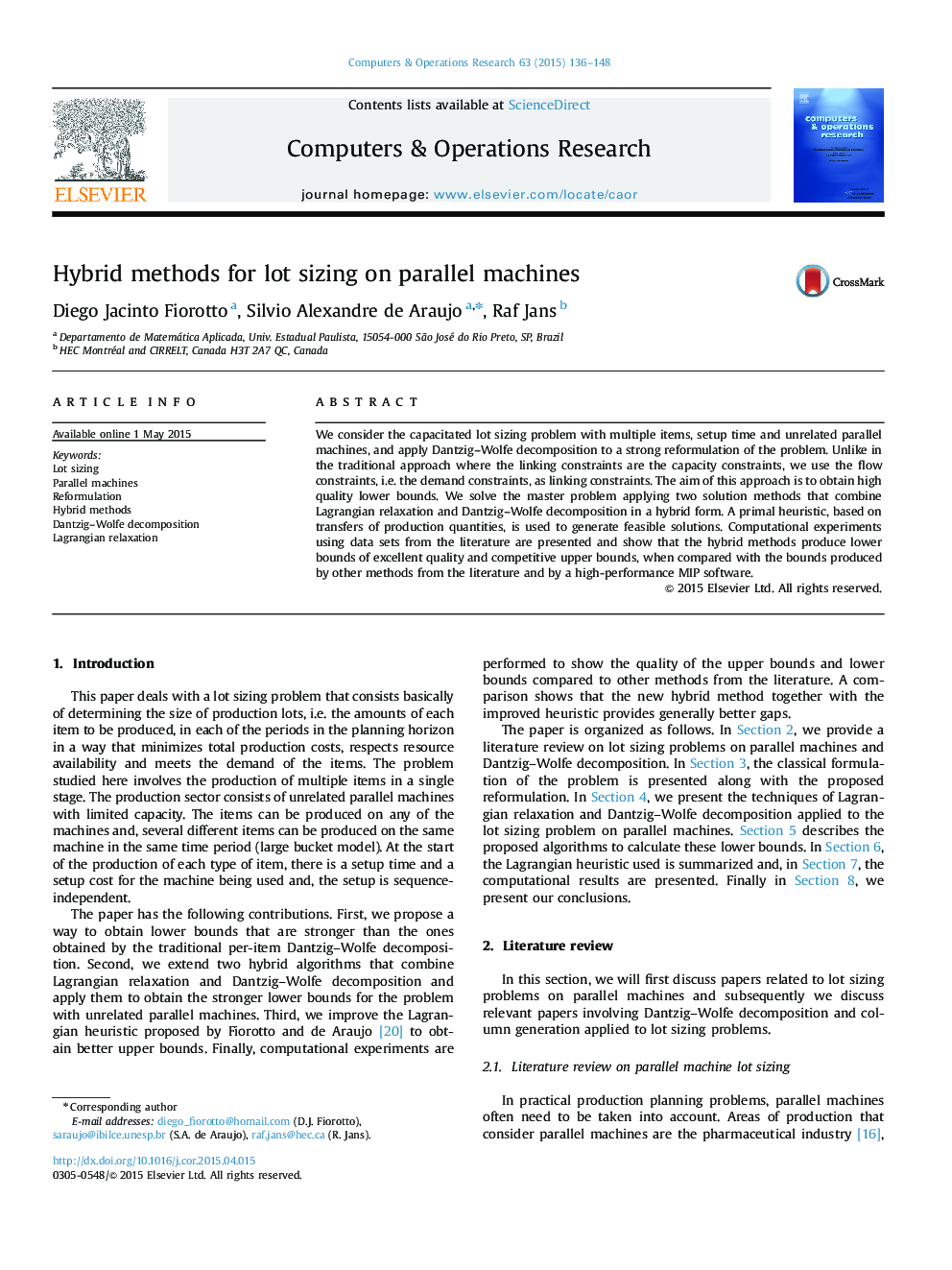| Article ID | Journal | Published Year | Pages | File Type |
|---|---|---|---|---|
| 472960 | Computers & Operations Research | 2015 | 13 Pages |
•Lower bounds stronger than the ones obtained by the traditional decomposition.•Hybrid algorithms combining Lagrangian relaxation and Dantzig–Wolfe decomposition.•Improved Lagrangian heuristic that obtains good upper bounds.•Computational experiments showing the quality of the proposed methods.
We consider the capacitated lot sizing problem with multiple items, setup time and unrelated parallel machines, and apply Dantzig–Wolfe decomposition to a strong reformulation of the problem. Unlike in the traditional approach where the linking constraints are the capacity constraints, we use the flow constraints, i.e. the demand constraints, as linking constraints. The aim of this approach is to obtain high quality lower bounds. We solve the master problem applying two solution methods that combine Lagrangian relaxation and Dantzig–Wolfe decomposition in a hybrid form. A primal heuristic, based on transfers of production quantities, is used to generate feasible solutions. Computational experiments using data sets from the literature are presented and show that the hybrid methods produce lower bounds of excellent quality and competitive upper bounds, when compared with the bounds produced by other methods from the literature and by a high-performance MIP software.
